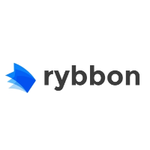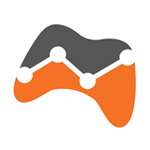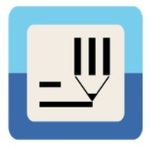Yes, most survey software can be accessed from a variety of devices and platforms, including PCs, laptops, tablets and smartphones. This provides additional flexibility and convenience for survey designers and participants. To provide a flawless experience, make sure the survey software is compatible with the various devices and platforms. Some survey software also includes native apps for iOS and Android, making it even more accessible.
List of 20 Best Survey Software
Pollfish - a market research tool powered by AI technology. With an intuitive interface and sophisticated targeting features, Pollfish allows you to quickly and accurately gather insights from a global audience. Say goodbye to slow and unreliable dat...Read More Pollfish
Elevate your rewards system with Rybbon Digital Incentives solution for effortlessly distributing global digital rewards. Our platform offers efficient delivery, personalized branding, and secure data protection. With comprehensive monitoring, you ca...Read More Rybbon Digital Incentives
Datagame is a survey platform that utilizes gamification strategies to enhance respondent involvement and reduce survey exhaustion. By incorporating fun elements, it significantly boosts response rates and overall satisfaction. With Datagame, convent...Read More Datagame
Iperceptions is a brand at the forefront of customer experience management, utilizing innovative technology to revolutionize businesses. By utilizing our advanced tools and solutions, companies can gather invaluable insights and improve their custome...Read More iperceptions
Surveybot – online survey creation and sharing tool. It streamlines the entire process, making it easy to design, distribute, and analyze surveys for valuable insights. Say goodbye to complex survey-making and hello to effortless data collecti...Read More Surveybot
PIEL Survey is a data collection tool for maximum efficiency. Available on both iOS and Android, this app offers a seamless experience for conducting surveys and capturing real-time data. Designed for Ecological Momentary Assessment, PIEL Survey ensu...Read More PIEL Survey
Instabug - the go-to mobile app performance solution used by over 25,000 teams globally. Its robust features, like crash analysis, performance tracking, and secure data gathering, optimize stability and enhance user satisfaction. With seamless integr...Read More Instabug
Critizr is a customer experience management software that aims to boost satisfaction and loyalty through real-time feedback and in-depth analytics. Trusted by over 150 businesses, it seamlessly integrates with existing systems to drive success and fo...Read More Critizr
Simplesat streamlines the feedback collection process and translates it into actionable steps. With its wide range of customizable surveys and real-time notifications, this all-in-one tool harnesses genuine customer insights. Experience the transform...Read More Simplesat
Crowdoscope - a groundbreaking software that transforms conversations through dynamic visual representations, objective feedback, and instant analyses. With a focus on enhancing participant involvement, simplifying data collection, and fostering coll...Read More Crowdoscope
Survey Planet is an innovative survey builder designed for market research, educational, and customer feedback purposes. With a wide range of customizable templates and options for multiple languages, it provides a user-friendly platform for creating...Read More Survey Planet
BlockSurvey is a tool for creating confidential surveys, polls, and forms with ease. Our platform allows for secure data collection among peers without any intermediaries or censorship. With strong encryption, we protect the privacy of your participa...Read More Block Survey
Examinare Survey Tool - a versatile and all-inclusive platform specifically designed for creating and managing surveys. With its advanced features, users can easily collect, analyze and present data while ensuring its protection. Whether for enterpri...Read More Examinare Survey Tool
Seerus is a customer experience management solution. Revolutionize your approach to customer satisfaction with our comprehensive platform. Monitor, enhance, and highlight customer feedback effortlessly. With industry-specific review management and ex...Read More Seerus
eBallot is a online voting solution for organizations of all sizes. With advanced security measures, real-time results, and robust analytics, eBallot makes decision-making effortless and transparent. Offering a variety of customizable voting methods,...Read More eBallot
CustomerThermometer is a Customer Loyalty Management solution. Our platform offers unparalleled flexibility in collecting feedback, with a variety of rating options and social media integration for instant responses. We also provide personalized emai...Read More Customer Thermometer
SurveyJS - the leading survey software that streamlines the creation of countless surveys and forms for your needs. Thanks to its user-friendly drag-and-drop interface, designing surveys has never been simpler. Our form libraries seamlessly integrate...Read More SurveyJS
Nest Forms is form building tool designed for both mobile and web. With its simple drag-and-drop feature, you can effortlessly collect data for a variety of purposes, such as surveys, inspections, and customer orders. It is compatible with Android an...Read More Nest Forms
IdSurvey, a survey platform designed for companies of all sizes. Utilizing advanced AI technology, this comprehensive software seamlessly integrates phone, web, and face-to-face data collection. With powerful analytical tools and efficient survey man...Read More IdSurvey
FourEyes the software solution trusted by users for its unwavering dependability and seamless performance across a variety of applications. Equipped with robust features and airtight security, FourEyes is the ideal choice for both business and person...Read More FourEyes
Learn More About Survey Software
- What Is Survey Software?
- What Are The Recent Trends In Survey Software?
- Benefits Of Using Survey Software
- Important Factors To Consider While Purchasing Survey Software?
- What Are The Key Features To Look For In Survey Software?
- Why Do Businesses Need Survey Software?
- How Much Time Is Required To Implement Survey Software?
- What Is The Level Of Customization Available In Survey Software?
- Which Industries Can Benefit The Most From Survey Software?
- Conclusion
What Is Survey Software?
Survey software is a strong tool that helps businesses and organizations get vital insights and feedback from their target audience. It is a sort of computer software that allows you to create, organize, and analyze surveys, questionnaires, and other data collecting tools. Survey software allows businesses to simply construct and disseminate surveys to a wide range of participants, including customers, workers, and other stakeholders.
These surveys can be tailored to specific research objectives by using a variety of question forms such as multiple-choice, open-ended, and rating scales. Furthermore, survey software has features that help to streamline the data gathering process, such as automated reminders, skip logic, and real-time reporting. This reduces time and effort for both survey producers and respondents, leading to greater response rates and more accurate data.
Once the data has been collected, survey software includes powerful analysis capabilities for interpreting the results. This can include things like data visualizations, cross-tabulation, and statistical tests. These insights can help firms make more informed decisions and improve their products, services, and operations. Some survey software also includes additional functions such as sentiment analysis, which analyzes text responses to discern sentiment or opinions, as well as interaction with CRM systems or Excel for seamless data management.
What Are The Recent Trends In Survey Software?
The field of survey software is continually changing, with new developments and features being added each year. As a buyer, you must stay up to date on industry trends in order to make sound business decisions. Some of the most recent trends in survey software include the rise of cloud-based solutions, integration with other platforms, increased customization choices, and the application of artificial intelligence.
Let us take a closer look at each of these tendencies.
1. Cloud-Based Solutions: In recent years, cloud-based survey software has gained popularity because to its increased flexibility, accessibility, and scalability. This type of software allows users to access surveys and data from anywhere with an internet connection, making it suitable for remote teams or those with numerous locations. It also eliminates the need for costly hardware and IT infrastructure, making it an affordable choice for companies of all sizes.
2. Integration with Other Platforms: Today's firms use a variety of tools and technologies to manage their operations. Survey software is increasingly being connected with other platforms, including CRM systems, project management tools, and email marketing software, to expedite procedures and improve efficiency. This makes it easier for businesses to collect and analyze input from their target audience, allowing them to make data-driven decisions.
3. Additional Customization possibilities: To differentiate themselves from competition, survey software vendors are providing consumers with additional customization possibilities. This includes the option to fully brand surveys with company logos and colors, as well as generate tailored survey experiences based on user demographics. This not only improves the overall user experience, but also enables businesses to collect more precise and relevant data.
4. Application Of Artificial Intelligence: Artificial intelligence (AI) is being used in survey software in a variety of ways, including producing more intelligent and responsive survey designs, automating data analysis, and delivering advanced insights and suggestions. AI-powered survey software can also assist in identifying data patterns and trends, enabling organizations to better understand their customers and make data-driven decisions.
Benefits Of Using Survey Software
Survey software is an effective tool for firms seeking to get important insights and feedback from their customers. This program enables businesses to quickly and efficiently develop and disseminate surveys to targeted groups, as well as gather and analyze results.
Let's explore, we'll look at the advantages of using survey software and how it may help organizations make educated decisions.
1. Increased Efficiency: One of the most significant advantages of survey software is the amount of efficiency it provides. Traditional techniques for preparing and distributing surveys can be time-consuming and labor-intensive. Survey software, on the other hand, allows organizations to rapidly and easily construct customized surveys using templates, pre-written questions, and an easy-to-use interface. This saves firms time and resources by allowing them to focus on data analysis and action.
2. Cost-Effective: Survey software not only saves time but also money for enterprises. Businesses can save a lot of money by not having to pay for paper, printing, or mailing. Survey software reduces the cost of creating and delivering surveys, making it an economical alternative for organizations of all sizes.
3. Accurate Data Collecting: Manual data collecting is prone to human mistake, which results in inaccurate data. Survey software mitigates this risk by automating the data collection procedure. The data submitted by respondents is automatically calculated and saved, assuring accuracy and reliability. This enables organizations to make data-driven decisions based on real-time information.
4. Customization: Another advantage of using survey software is the option to tailor surveys to specific company requirements. Businesses can include their brand, personalize emails, and tailor the questions to their intended audience. This level of customisation leads to higher response rates and more accurate statistics.
5. Real-Time Reporting: Survey software allows organizations to receive real-time responses and generate reports instantaneously. This enables firms to respond to comments and make adjustments rapidly. Real-time reporting also gives an overview of the data collected, making it easier to see trends and patterns.
6. Targeted Audience: Traditional techniques of getting feedback may not always reach the desired audience. Businesses can, however, use survey software to target specific demographics, allowing them to gain useful data from their target audience. This increases the relevance and dependability of the information gathered.
7. Integration With Other Tools: Many survey software packages include integration with other tools like CRM systems and email marketing platforms. This enables firms to streamline their processes and readily export data for additional analysis and action.
Important Factors To Consider While Purchasing Survey Software?
When it comes to choosing survey software, there are several crucial elements to consider in order to make an informed and useful decision for your organization. From features and functionality to cost and customer service, thoroughly evaluating these aspects can help you select the best survey software for your needs.
To help streamline this process, we have identified the following critical elements to consider when choosing survey software:
1. Purpose: Choosing the proper survey software begins with determining why you want to use it. Are you wanting to collect client feedback, market research, or staff data? Different survey software packages are intended for specific purposes, therefore it is critical to determine your goals before making a purchase.
2. Features And Functionality: Now that you've determined your purpose, you can assess the survey software's features and functionality. Look for features like customized templates, branching logic, and data analysis tools that meet your requirements. It's also important to assess the software's usability and interoperability with various platforms and devices.
3. Scalability: As your firm expands, so will your survey requirements. As a result, it's critical to select survey software that can grow with your organization. Consider the software's ability to handle many surveys and responses, as well as its storage capacity and pricing structure for additional users and features.
4. Data Security: Because surveys frequently contain sensitive information, data security should be a primary consideration when picking survey software. Consider features like safe servers, SSL encryption, and data backup and recovery options. It is also recommended that the software complies with GDPR and other data protection requirements.
5. Customer Support: When problems or questions emerge, timely and efficient customer service is essential. When considering survey software, seek for companies that have many service channels, such as email, phone, and live chat. You may also read user reviews to get an idea of how the software vendor handles customer service.
6. Pricing: Survey software is available in several pricing formats, including subscription-based, per-use, and perpetual license. Consider your budget and the features offered by each plan to determine which pricing model is appropriate for your company. Check for any hidden fees or additional costs for extra features or support.
7. Integration: Your survey software will most likely need to link with other company tools and software, such as CRMs or analytics platforms. To avoid difficulties, make sure that the survey software is compatible with your existing systems.
By taking into account the variables listed above, you can make an informed decision about survey software that meets your company's demands and goals. Remember to use free trials and demonstrations to test the program before making a purchase. With the appropriate survey software, you can speed your data collecting and analysis, resulting in important insights and better corporate decision-making.
What Are The Key Features To Look For In Survey Software?
When looking for survey software, there are numerous crucial elements to examine to ensure you get the best option for your purposes. These features will influence the overall functioning, usability, and efficacy of the software, making them critical considerations as you make your decision.
1. Survey Creation And Customization Capabilities: The primary function of survey software is to develop and distribute surveys, so it is critical to assess the software's capabilities in this regard. Look for a platform with a range of question kinds, configurable design options, and the opportunity to include multimedia elements. The more options you have, the more personalized and engaging your surveys will be.
2. Survey Distribution And Response Management: Another important factor to consider is how the software will distribute your survey and manage responses. A successful platform should provide a variety of distribution options, including email, social media, and website embedding. It should also have facilities for tracking and managing replies efficiently, such as automated data analysis and reporting.
3. Data Analysis And Reporting: Tools Collecting replies is only half the battle; the true value of survey software stems from its capacity to evaluate and report on data. Look for features like customized filters, infographics, and statistical analysis tools to help you get the most out of your data. Additionally, the software should have the opportunity to export data in a variety of formats for additional study.
4. Integration With Other Tools: Survey software should integrate effortlessly with your current tools and processes. Before making a purchase, make sure the program is compatible with your CRM, marketing automation, or project management software. This allows you to improve your process and simply share data across multiple platforms.
5. Mobile Responsiveness: With the increased use of mobile devices, it is critical that the survey software you use is mobile responsive. This implies that surveys may be quickly accessed and completed on smartphones and tablets, resulting in a better user experience and higher response rates.
6. Security & Privacy: When handling sensitive data, security and privacy are critical. Make sure the survey software meets industry standards and has features like data encryption, secure servers, and the option to restrict access to certain people.
When choosing survey software, consider these crucial aspects to make an informed selection and choose the best platform for your purposes. To get the best fit and get the most out of your survey software, consider your budget, team size, and specific needs.
Why Do Businesses Need Survey Software?
Survey software is an indispensable tool for firms seeking valuable data from their target audience. In today's competitive market, organizations must have a thorough understanding of their customers' wants and preferences, which survey software offers. Traditional paper surveys are becoming outmoded as more people use technology and digital tools.
Survey software provides a more efficient and cost-effective method for gathering, analyzing, and acting on consumer input. It enables organizations to effortlessly develop and disseminate surveys, reaching a larger audience in less time. Furthermore, survey software allows firms to tailor polls based on their specific aims and target audience.
Whether it is customer satisfaction, market research, or product feedback, survey software provides a variety of question formats, such as multiple choice, rating scales, and open-ended questions, to collect meaningful and reliable data. In addition to data collection, survey software provides powerful analytic tools to help firms make sense of their findings.
The software offers real-time reporting and data visualization, allowing firms to detect trends, patterns, and areas for improvement. This data-driven strategy enables businesses to make educated decisions and steer their business plans in the correct direction. Survey software also facilitates collaboration and data sharing within a company, thereby speeding data collection and analysis.
This guarantees that all stakeholders are on the same page and can collaborate to achieve a single objective by leveraging actionable insights from survey data. Furthermore, with a growing emphasis on the customer experience, survey software enables organizations to assess and improve customer satisfaction levels, resulting in improved retention rates and customer loyalty.
Finally, survey software is an excellent investment for organizations of all sizes and industries, offering a thorough grasp of their consumers' views, preferences, and demands. It enables organizations to make data-driven decisions, boost customer happiness, and remain competitive in today's dynamic and ever-changing market.
How Much Time Is Required To Implement Survey Software?
The time necessary to integrate survey software varies according to the program you select and the size of your firm. On average, the process can last anywhere from a few days to a few weeks. First, conduct research and select the survey program that best meets your requirements and budget. This may take several days as you evaluate different options and read reviews.
Once you've decided on the program, you'll need to create an account, customize your survey questions, and select any additional features you want to use. This stage can take anything from a few days to a week, depending on how extensive your survey is and how much customisation you desire. Following the initial setup, you may need to test your survey to confirm that it is operational and make any necessary changes.
This can take anything from a few days to a week, depending on the size of your sample group and duration of the survey. Finally, launch your survey and begin gathering responses. This procedure can take anything from a few days to a few weeks, depending on how many responses you expect and how frequently you conduct your poll. Overall, it is essential to set aside a few weeks to integrate survey software to ensure a smooth and effective procedure. Keep in mind that continuous maintenance and data analysis may require more time.
What Is The Level Of Customization Available In Survey Software?
When selecting survey software, one key element to consider is the level of customization it provides. The level of personalization has a significant impact on the usefulness and relevancy of your surveys, making it an important consideration for businesses and organizations. Most survey software today offers varied levels of customization, allowing users to personalize their surveys to their individual needs and goals.
However, the level of customization allowed may differ from one software to another. On a basic level, survey software often allows users to change the form and layout of their surveys. This includes the ability to add branding elements such as logos and colors, as well as choosing from a number of templates and themes. This level of personalization is perfect for firms who want to retain a consistent brand identity throughout their surveys.
Furthermore, some survey software has significant customization capabilities, allowing users to tailor survey questions, answer alternatives, and even the survey flow. This level of customization is ideal for companies who want to develop highly tailored and targeted surveys for their audience. Furthermore, survey software allows for significant customization through the use of scripting and APIs.
This gives customers complete control over the design and functionality of their surveys, making it suitable for enterprises with special technological requirements or those wishing to link their surveys with other apps. It is crucial to realize, however, that additional personalization results in greater complexity. More advanced customization options may necessitate technical knowledge or assistance from the program provider. As a result, before investing in highly configurable survey software, organizations must carefully consider their goals and capabilities.
Which Industries Can Benefit The Most From Survey Software?
Survey software is an effective tool that can be used by a variety of sectors to collect important insights and make data-driven choices. Survey software can be used for a variety of objectives, including market research, customer satisfaction, employee feedback, and event planning, all of which provide major benefits to firms. However, survey software can be more beneficial to certain businesses than others.
Let's explore, we'll look at which industries stand to benefit the most from survey software implementation and how this technology might help them meet their specific requirements.
1. Market Research: The market research sector relies significantly on data and input from existing and prospective consumers. Survey software makes conducting market research more efficient and cost-effective, allowing researchers to easily collect vast amounts of data from a wide population of respondents. With advanced capabilities such as skip logic, customization options, and data analysis tools, survey software may assist market research professionals in making data-driven decisions and staying ahead of the competition.
2. Healthcare: In the healthcare industry, the patient experience is extremely important. Survey software enables healthcare providers to collect feedback from patients and families in order to better understand their requirements and enhance their services. This real-time input can help healthcare facilities identify areas for improvement and deliver better patient care.
3. Human Resources: Employee engagement and happiness are critical to the success of any firm. Survey software allows HR professionals to assess and track employee satisfaction, collect feedback, and identify potential problems. This can help businesses enhance their workplace culture, retain top talent, and increase employee productivity.
4. Education: Survey software can be used to get input from students, parents, and teachers. It can assist educational institutions in better understanding their students' requirements and making required changes to their curriculum and instructional techniques. Surveys can also be used to assess the efficacy of educational programs and make modifications as needed.
5. Hospitality And Tourism: The hospitality and tourism industries rely largely on client happiness to generate revenue. With survey software, hotels, resorts, and tour operators may collect client input and improve their services to meet customer expectations. Surveys can also be used to track client preferences and customize products and services accordingly.
Conclusion
Finally, selecting the appropriate survey software for your business can significantly improve data collection and decision-making processes. Before making a purchase, you should carefully analyze your needs and requirements, including budget, features, and user-friendliness. It is also critical to ensure that the program has robust data security mechanisms in place to protect your sensitive information.
With so many alternatives available, it is critical to conduct extensive research and compare various survey tools to choose the best fit for your firm. Remember to analyze the software's scalability and integrations to ensure that it can expand with your company and interact effortlessly with your current systems. By following these steps and keeping your individual goals in mind, you will be able to make an informed decision about survey software.
Survey Software FAQ's
Can Survey Software Be Accessed Across Multiple Devices And Platforms?
Is Survey Software Future-Proof And Adaptable To Emerging Technologies Like AI, Blockchain Or IoT?
Given the continually changing technological world, software must be flexible to emerging technologies. Fortunately, most survey software is future-proof and compatible with AI, blockchain, and IoT. Intelligent survey design, automatic data analysis, and safe data storage are just a few of the features that make survey software well-suited to the changes brought about by technology. This ensures that firms can gather data efficiently and make informed decisions in the future.
Is There A Free Trial Offered To Assess Survey Software Before Committing?
Yes, many survey software companies provide a free trial, allowing consumers to evaluate the product before committing. This trial time often allows consumers to evaluate the software's features, functionality, and user experience. It's an excellent technique to see if the product matches your requirements and is worth investing in. Make sure to use the free trial to make an informed selection.
Does Survey Software Offer Data Security Features And Meet Regulatory Compliance Standards?
Yes, most survey software systems provide data security safeguards to protect sensitive information and limit access to authorized individuals. This covers functions like data encryption, secure server connections, and user access controls. Furthermore, many survey software vendors follow industry rules such as GDPR and HIPAA to ensure that their platform satisfies the highest levels of data privacy and security.
Can Survey Software Integrate Seamlessly With Existing Tools And Platforms?
Yes, most survey software nowadays integrates seamlessly with popular tools and platforms like CRM, email marketing, and project management. This enables a more streamlined and effective data management approach. Furthermore, some survey software includes API interface possibilities, making it easy to link with bespoke or third-party applications. This integration capability improves the functionality and data processing capabilities of survey software.






















